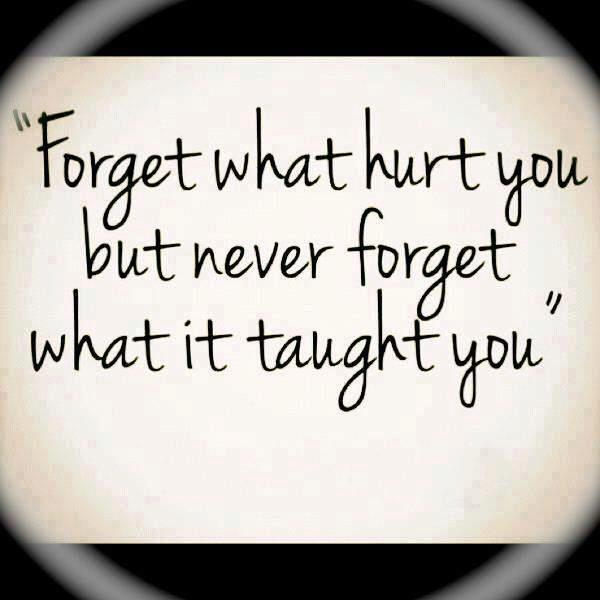
“The misconception in general is that when we do not know of something … it therefore seizes existence. This is how people end up using people and getting used as well.”
“We are born with freedom. Nobody is responsible for anything we do or say…But ourselves. We are born with the capacity to change our own circumstances.”
Please enjoy this read and keep it in mind …
Definition
Reactance theory, proposed by Brehm (1968), outlines the consequences that occur when individuals perceive their freedoms are threatened or lost (Brehm & Brehm, 1981). Within reactance theory, individuals believe they possess a set of “free behaviors” that they can choose to act upon at any time (Dillard & Pfau, 2002). This theory is based on the notion that people desire freedom of choice and if this freedom is removed by external constraints then there will be a negative aversive response (Baumeister, Catanese, & Wallace, 2002). Integral to this theory is the notion that a threat to free behaviors excites a motivational state, which is aimed at recapturing the affected freedoms and preventing the future loss of others (Fogarty, 1997). Therefore, the manifestation of reactance is behavior directed toward restoring freedom (Brehm & Brehm, 1981). Freedom can possibly be reestablished by behaving in a way opposite to what is desired by the manipulative source (Kirchler 1999). The concept of reactance is often connected to the idea of “reverse psychology,” which is based on the notion that telling someone not to do something would in turn make it more appealing (Baumeister, Catanese, & Wallace, 2002).
Magnitude of Reactance
The intensity of reactance has been found to be a direct function of the magnitude of the threat upon the freedom (Fogarty, 1997). Therefore, the higher the degree of the magnitude of reactance, the more effort an individual will attempt to restore the freedom (Dillard & Pfau, 2002). Also, the reactance response is determined by the degree in which persuasion and coercion is used to intrude on freedom (Edwards et al. 2002). There are four main principles that assist in stipulating what may be the main determinates of the magnitude of reactance (Brehm & Brehm, 1981). According to the first principle, reactance can be aroused only if the individual believes they have a freedom over a potential outcome (Brehm& Brehm, 1981). The importance of the freedom that may be eliminated is crucial in determining the level of reactance that may result. The second principle states that if an individual is told they cannot chose one of the two attractive choices presented, then the level of reactance aroused is dependent of the importance of the alternatives (Brehm & Brehm, 1981). Brehm (1981) states that amount of reactance resulting from a threat is a direct function of the number of freedoms threatened. Therefore, the magnitude of reactance increases as the proportion of threatened behaviors increases (Dillard & Pfau, 2002). The fourth principle discussed in relation to reactance claims that implied threats increase the magnitude of reactance because freedoms can be threatened by implication (Brehm & Brehm, 1981).
Consequences Due to Magnitude of Reactance
If a particular freedom is lost there are three main possible consequences due to the magnitude of reactance. The individual may experience increased desire for the lost freedom and view it as more attractive than it was before (Baumeister, Catanese, & Wallace, 2002). Also, the individual might respond by attempting to reassert freedom by performing the behavior that was taken away and forbidden (Baumeister, Catanese, & Wallace, 2002). The third likely consequence due to reactance is the individual aggressively lashing out toward the person responsible for removing the desired option (Baumeister, Catanese, & Wallace, 2002)
Methodology
Early in Brehm’s (1971) investigation of reactance theory, he conducted a study to demonstrate how freedom affects reactance. Over the length of six sessions, female undergraduate students were asked to taste and rate three unfamiliar Argentinean desserts (Brehm & Brehm, 1981). In each session, half of the participants were allowed the freedom to choose which dessert they wanted to taste, while the other half were low freedom by being assigned a dessert. Brehm and Rozen (1971) designed the experiment to “create the psychological conditions that exist when a person has his or her behavioral freedoms expanded” (Brehm & Brehm, 1981). This was accomplished by allowing high freedom subjects to choose their favorite dessert, while assigning the rated favorite dessert to the low freedom subjects. In the last session, participants were asked to rate the Argentinean desserts against a new well-liked familiar dessert (Brehm & Brehm, 1981). The introduction of this new dessert threatened the freedom that had previously been established. In the previous sessions, the high freedom participants had continually exercised their free choice to taste any of the three Argentinean desserts (Brehm & Brehm, 1981). According to Brehm and Rozen (1971), since the new alternative was attractive they would want to taste it, which would threaten their freedom to taste the old options. Most importantly, the freedom to taste the Argentinean dessert that was deemed to be most attractive was threatened (Brehm & Brehm, 1981). However, since the low freedom participants were not given any freedoms previously they couldn’t feel threatened. Brehm and Rozen (1971) proposed that maximized reactance arousal would occur for high freedom subjects when rating the fourth dessert and would be seen by an increased attractiveness for the new item.
Results Based on this study, reactance resulted from an increase in attractiveness, which led the participant to feel that a prior freedom had been threatened. The results were consistent with Brehm and Rozen’s prediction. Low freedom participants showed negative changes in attractiveness ratings after the alternative was introduced (Brehm & Brehm, 1981). Brehm and Rozen (1971) discovered that a positive change in attractiveness ratings resulted for the alternative previously regarded as the most attractive. The change in rating results for the most attractive dessert after the new alternative had been introduced was -1.96 for low freedom and +.33 for high freedom participants (Brehm & Brehm, 1981). These results demonstrated that high freedom participants showed regret for not being able to have the freedom to taste their most attractive old dessert. The results of this study confirmed that high freedom participants would experience reactance.
Current Studies Reactance theory continues to be studied today in a variety of different settings. Fogarty (1997) proposed that many medical patients avoid compliance as means to retain control over their illness or as a way to reassert a valued freedom. In a medical setting, it is believed that if a patient perceives a threat to their freedom then noncompliance may occur (Fogarty, 1997). Also, in a medical setting a larger number of highly valued freedoms may be affected, which would lead to reactance because the person may have reached a threshold point for threat perception (Fogarty, 1997). Reduction to reactance can be achieved by working toward increasing patient control and limiting the threats to freedom (Fogarty, 1997). Another recent study on reactance theory showed that sexual coercion could be due to reactance. Baumeister et al. (2002) suggests that when a man is deprived of specific sexual options he will desire them more and try to reclaim them by using aggression. The rejection of the desired sex is perceived as a loss of freedom, which could lead the three consequences of reactance to occur (Baumeister, Catanese, & Wallace, 2002). According to this theory, the drive to reclaim sex is accountable by reactance and the male’s narcissism will increase the chances that steps are taken toward coercion (Baumeister, Catanese, & Wallace, 2002). Reactance theory has also been connected to economic issues. Kirchler (1999) believes that attitudes towards taxes can be a result of reactance. Entrepreneurs may perceive taxes as threat to their freedom of deciding how they want to handle their finances (Kirchler 1999). Also, taxation leads to a loss of money that a person previously possessed, which could lead to intense negative feelings and reactance (Kirchler 1999). In order to reestablish the lost freedom, the individual may develop negative attitudes towards the government and taxes (Kirchler 1999).
References
Baumeister, Roy F., Kathleen R. Catanese, and Harry M. Wallace. “Conquest by Force: A Narcissistic Reactance Theory of Rape and Sexual Coercion.” Review of General Psychology 6 (2002): 92-135.
Brehm, Sharon, and Jack W. Brehm. Psychological Reactance : A Theory of Freedom and Control. New York, NY: Academic P, 1981.
Dillard, James P., and Michael Pfau, eds. The Persuasion Handbook : Developments in Theory and Practice. Minneapolis, MN: SAGE Publications, Incorporated, 2002.
Edwards, Steven, Hairong Li, and Joo-Hyun Lee. “Forced Exposure and Psychological Reactance: Antecedents and Concequences of the Perceived Intrusiveness of Pop-Up Ads.” Journal of Advertising 31 (2002): 83-95.
Fogarty, Jeanne S. “Reactance Theory and Patient Noncompliance.” Social Science Medical 45 (1997): 1277-288.
Kirchler, Erich. “Reactance to taxation: Employers’ attitudes towards taxes.” Journal of Socio-Economics 28 (1999): 131-38.
All Credit to Psychiwiki.com









